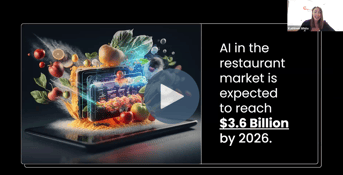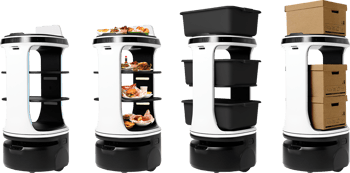Philadelphia’s Musi received no lack of praise in its three and a half years of operation. The 30-seat restaurant was known for its ever-evolving menu of creative dishes informed by local ingredients, as well as its mainstay “buttered noodles”, an elevated version of the kid-friendly dish, made with bow ties crafted from locally milled flour, pastured eggs sourced from a Philadelphia butcher, and silk chili flakes from Burlap & Barrel, a company working to fight exploitation and boost sustainability in the spice industry.
“The concept was really to explore foodways through non-industrial means,” says chef-owner Ari Miller. “What we coined as the term ‘relationship cuisine’ was the idea that a restaurant exists in a living, breathing relationship with the sources of its ingredients – the farmers, butchers, mongers, all those people who are making things as actual people.”
In its first year, Musi landed a spot on Eater’s list of best new restaurants in America. Locally, Philadelphia Magazine awarded Miller the title of the city’s “best chef”. When the pandemic pushed the restaurant to pivot from fine dining, Musi’s new focus, a sustainably sourced cheesesteak, made it onto Food and Wine’s list of “best dishes we ate in 2020”. And in 2021, when Musi reopened for indoor dining, many of the regulars returned.
Miller kept staff wages competitive at a minimum of $15 an hour and maintained high standards in terms of its relationships with local suppliers.
But in the end, it wasn’t enough.
Last September, Miller announced he would bring Musi to a close, citing the “crippling” effect the pandemic and its aftermath had on the restaurant. We sat down to learn more about that decision and Miller’s takeaways from the experience. Plus, Miller shares advice for others striving to raise the bar in a challenging environment.
You opened Musi with 30 seats in a residential pocket of South Philadelphia. Going in, did you have any hesitations about the size or location of the restaurant?
I had no hesitations about the size. If anything, I would’ve loved it to be 22 seats. But the reality of the location was that it was the opportunity we got. We didn’t choose that neighborhood with intention. We chose that location because we saw ourselves in that space. The restaurant that was there prior was doing so well that they moved into a larger location. So there was some good momentum.
When we opened and had national press, people sought us out. We became a destination. But it was difficult being in that space when no one was paying attention. I think the location did hold us back but it wasn’t the demise.
The demise was just navigating the pandemic. Ultimately we were a pandemic closure. We navigated through the hardest parts of the pandemic, and we received government funds, which was a huge component of our ability to do that. But I know speaking to other chefs and owners of small restaurants, everyone’s still struggling. Overall, a restaurant that’s open right now is not guaranteed to be open in six months.
What do you see as the greatest challenge operators are facing now as an aftermath of the pandemic?
People’s habits have changed dramatically. People go out less now. I know I do. And yet restaurants keep opening, so the competition remains very, very stiff, but the potential pool of diners is smaller.
When people’s habits are altered over the course of multiple years, that creates real change, combined with the fact that COVID is still a concern. If someone has a big event coming up, like a wedding or a baby was just born, I know people who stay home because they don’t want to risk contracting COVID. Even though the landscape has changed so dramatically from 2020, we’re not out of this.
Prior to the pandemic, how was business in your first year? Were you meeting the margins you were hoping to hit?
We had a great year. Had the pandemic not hit, we probably would’ve talked about some notion of expansion.
We were hitting the margins. We had waiting lists. We’d do two turns a night at least, and there were times we’d push three turns. We controlled costs with how we cooked. We weren’t a prime rib or filet mignon restaurant. We were using off-cuts and using our food with the idea that nothing got wasted. Our food costs reflected that. We also had a tasting option that was very popular, and that was useful in terms of controlling food costs. We weren’t super expensive, but we were fine dining, and we had a philosophy.
During the pandemic, you pivoted your restaurant to a takeout operation centered around a sustainably sourced cheesesteak. Can you share what that looked like? By adapting and simplifying the menu, were you able to keep your business afloat?
The issue with the cheesesteak was that because of the way we sourced it, the cheesesteak should’ve cost around $21. Eventually we raised the price from $15 to $16, but it was problematic. If someone hears the word cheesesteak, their imagination’s only willing to go so far to justify how much they can spend on it. It honestly would’ve been easier to sell a hamburger for more money.
The idea was that we had to make it up in volume, and that never materialized. We were able to stay afloat for a while from cheesesteak sales and PPP money, but we weren’t as busy as we needed to be.
We tried delivery, but the margin was reduced to the point where it was almost counterproductive. Ultimately, we passed all of the delivery fees onto the consumer, and that allowed us to function. But by that point, restaurants started indoor dining again, and we saw an exponential drop in delivery. That was when we started having the conversation about, what do we do now?
I presume that’s what led you to eventually reopen Musi for indoor dining.
We tried outdoor seating in the summer, but at that point, other restaurants were offering indoor seating, and people weren’t eating outside aggressively anymore. The option to eat inside with air conditioning became a big tipping point for us. So we reopened indoor dining because we were no longer busy enough. We never really discussed shutting down at that point, and we managed to stay afloat with the cheesesteaks and the restaurant for about a year.
Eventually you announced Musi would be closing, which I imagine was far from an easy decision. At what point did you start thinking about closure, and what ultimately went into that final call?
We started thinking about the closing months before we announced it, realizing we needed to have that conversation so that if we had to make the decision, we could make it responsibly. And what finally made that decision is that we struggled to make payroll two or three times.
We realized we could continue on this route with the very real possibility of a crash and burn, or we can say, “Look, we tried, we had successes, and we had failures as well.” That’s legitimate for a small business. Ultimately we weren’t going to pull through this, and we wanted to do it in a way that allowed us to control that narrative. Our worst case scenario was doing it to the point where we were in severe debt or had zero dollars in the bank account and just didn’t show up the next day. We were able to control the story, capitalize upon the closing, and accommodate the influx of guests looking to have one last meal at Musi or those people who had been meaning to come in. Honestly, it was a great business decision to close.
Like all operators, you were facing inflation and rising food costs. But you’ve mentioned publicly that you were already paying a premium on ingredients because a majority of your suppliers were local, smaller operations. You also paid staff a minimum of $15 an hour, and I’m wondering, do you think there was a world where all of this could’ve been sustainable for Musi? What do you think it really takes for a restaurant operator to be able to pull that ethos off?
The optimist in me wants to say it would’ve been possible. But ultimately, it only works if you have the people coming in to buy it. We had all the momentum going into the pandemic, but at some point, it really dissipated.
When we reopened, we had people saying, “Thank god you're back.” People were writing about the restaurant, the food, about me, and the feedback from the people coming in was overwhelmingly positive, but it just didn’t materialize. I’ve talked to other chefs and restaurateurs through this whole process, and the conversation hasn’t changed – it remains of wondering where everyone is. It goes back to the fact that habits have changed.
Are there any other key takeaways you’ve been reflecting on since closing Musi?
We closed with no regrets. What we tried to do were the right decisions, and as such, we were able to close with a sense of professional satisfaction. Musi could’ve worked if we hired a dishwasher and paid them $10 an hour, but we were never going to do that. We were staking a claim in a vision of what we thought could be better. There wasn’t any sense that we’d try to go backwards. If anything, it was about, how can we make what we’re doing even better, like add benefits and health insurance – things we viewed as hugely important.
It didn’t work, and that’s fine. We did what we were supposed to do, and the next round, we’ll have the experience of this. However we progress, we carry with us the very positive momentum of having tried something decent.
Is it safe to say that at this point, you wouldn’t open another concept that doesn’t maintain the same values that you strived for with Musi? Or is there a scenario where, for example, you work with less local suppliers in order to save money?
We even had that conversation at Musi – what if we started buying cheaper stuff? But first off, there isn’t a lot of cheaper stuff anymore. I was talking to a colleague yesterday, and a case of eggs was $100. My case of eggs, in 2019 and now, was always in the ballpark of $60 to $70.
I love cooking with the beef heart instead of the ribeye, I love those forgotten ingredients, and just, the idea of cheap ingredients, it’s an anathema to fine dining and sustainability. Even if you’re thinking about sustainability in terms of your employees, but then you stop thinking about decency with how you source, you’re going to be counterproductive.
There’s framework for these values now and practical experience in terms of what it looks like financially. So any restaurant that gets built in the future starts with this real experience.
Do you think you’d ever shift towards a different style of restaurant, like a fast casual?
When I was opening Musi, I don’t think I would’ve ever considered it, but now, I’d be equally open to a fast causal approach. But it would be incredibly circumstantial – in terms of the money I could raise, the location available, the job market.
Musi was my first restaurant, and I was looking to prove something culinary speaking, and generally you do that with dinner, small plates, a fine dining approach. I have that itch scratched now. I love the format and that aspect of the culinary world. But I also now have more appreciation for what it means to run a business as opposed to just trying to prove something professionally. From having talked with colleagues, my educated guess is if you spoke to people across the board about this, this is part of a professional maturation process, and you just have to go through it.
So is another restaurant in your near future?
Looking at the Philadelphia market, between staffing and saturation, I’m not looking to climb that uphill battle. I need to take some time back from that.
People are still opening aggressively. I don’t know how they’re staffing. But I’m a believer in this industry. I love restaurants, I love bars, I love seeing how people keep reinventing the same thing over and over again with a fresh perspective. I think the allure will always be there. Just personally, for the moment, I don’t have it in me.
When I was closing, people reached out with project propositions, so that’s been interesting. Professionally, I didn’t know to expect that. I’m not looking to reopen, but the groundwork is there to have those conversations.
Do you have any advice for operators who are currently trying to raise the bar in terms of wages and sustainable practices but are struggling in this current climate?
Just be prepared for the struggle. This was never an easy industry to begin with. It was based on exploited labor and unhealthy practices. The return on the reward of insisting on decency is incredibly valuable. It’s a long-term strategy with short-term rewards. You just have to be open to the idea of failure. It’s small business in America. It’s not built for us. But it’s necessary to try to do this properly and to seek out the community of like-minded people so that you have that support and knowledge of knowing you’re not alone in the attempt.
[Photo courtesy Rachel Wisniewski]





